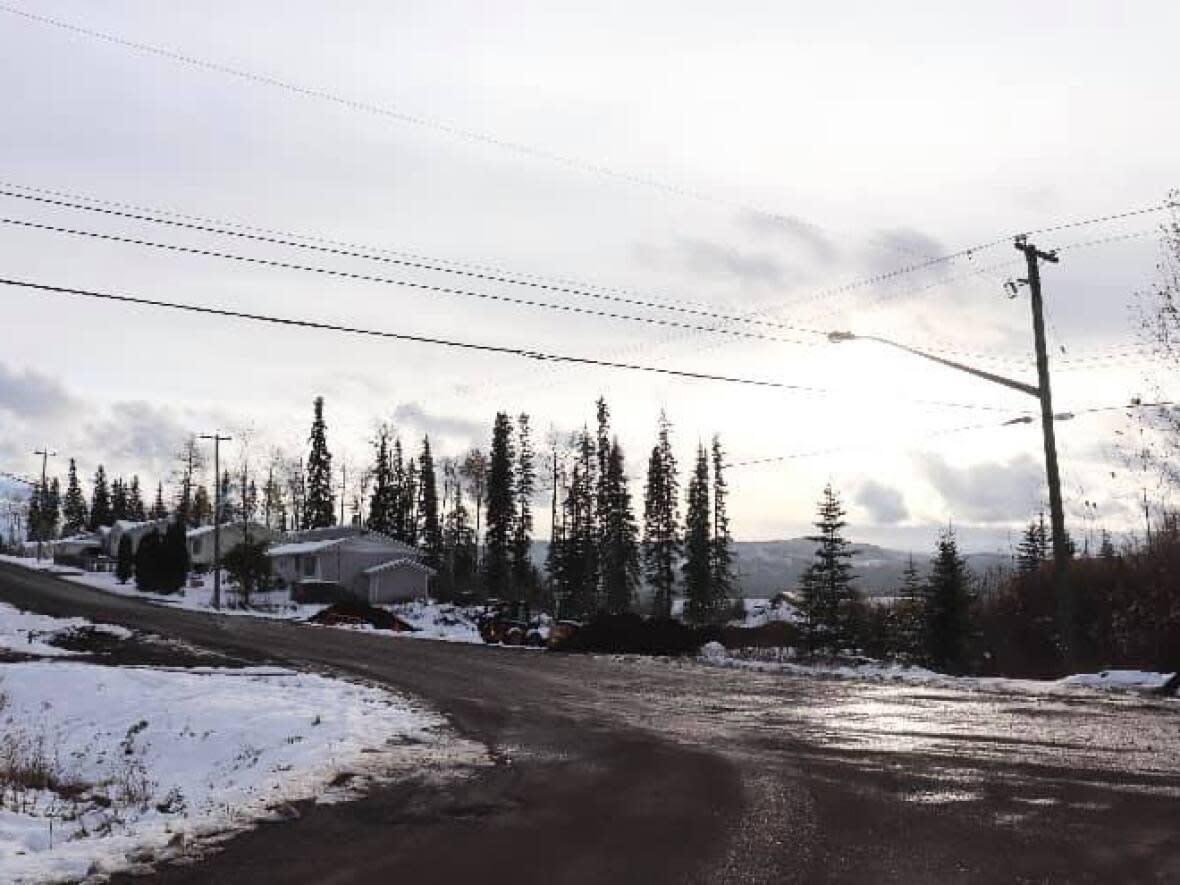Lake Babine chief joins calls for COVID-19 boosters as coronavirus ravages nation

The Lake Babine Nation has roughly 2,500 registered members and Chief Murphy Abraham doesn't want to lose any more of them to COVID-19.
According to Abraham, the coronavirus has already claimed seven lives this year in the community, which is located about 220 kilometres west of Prince George, B.C.
Despite declaring a state of emergency on all three of the nation's reservations, and restricting visitor access to the territory until at least Nov. 5, clusters of the virus continue to pop up and pose a deadly threat.
Now, Abraham is adding his name to a growing list of Indigenous leaders calling on the province to provide booster vaccines to vulnerable elders, while he works with health officials in the region to try to reach those members refusing to immunize.
Abraham has already lost two family members to COVID-19 and his father is currently hospitalized in Prince George and fighting for his life.
"We're hoping to attack this, at least put this virus in its place, stop it in its place. And one way to do that is to have a booster shot ... the sooner, the better," said Abraham, speaking to CBC Radio One on Monday.

Other nations in need
A number of First Nations, including the Wet'suwet'en and Carrier Sekani Tribal Council, have called for immediate booster shots as the fourth wave of the pandemic continues to impact Indigenous communities.
According to a Friday news release from the Wet'suwet'en First Nation, a senior government official said the nation would not receive booster shots until early in the new year, although it did not specify who the official was.
Priscilla Mueller, chief of the Saik'uz First Nation and a board director of the Carrier Sekani Tribal Council, told CBC she worries third doses might arrive too late in Indigenous communities for some seniors.
In an email statement to CBC News, Provincial Health Officer Dr. Bonnie Henry said no formal requests have been made and that the province is currently delivering third doses to people who don't develop a strong immune response because of a health condition or certain medications, and to those living in long-term care facilities.
Abraham said there is some vaccine hesitancy among some nation members due to the sharing of misinformation on social media, as well as Indigenous distrust of the government due to the history of colonialism.
Abraham said there are also members who are still gathering with friends and family despite being forbidden to so since the state of emergency came into effect on Oct. 8.
In an attempt to provide members with accurate information and try to bolster immunization rates, the nation held a virtual town hall last week with First Nations Health Authority Chief Medical Officer Evan Adams and Bernard Patrick, director of the region's Emergency Operations Centre.
Abraham said he plans to hold another town hall soon to keep pushing out consistent messaging and encouraging members to immunize and stay home.
Green Party MLA Adam Olsen, a member of the Tsartlip First Nation, told CBC that given all the historical reasons for Indigenous people to distrust the government, he suggests the province act on what is being asked.
"We need to make sure that government is building the trust of Indigenous communities and Indigenous leadership by responding when they're making those requests," said Olsen.
In Alberta, the provincial government is already providing its Indigenous population over the age of 65 a third booster shot.


